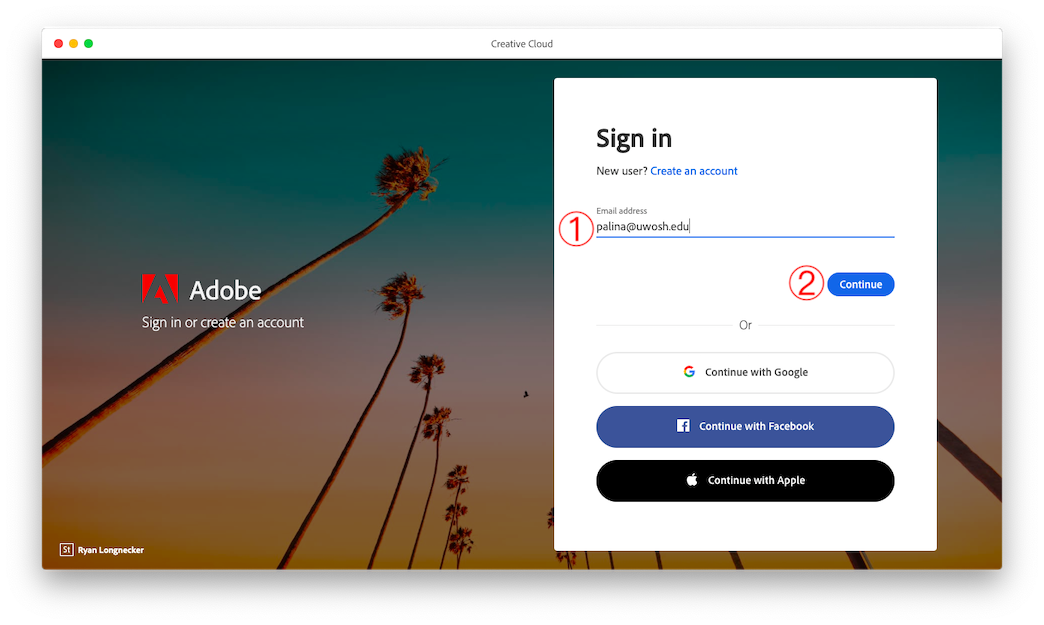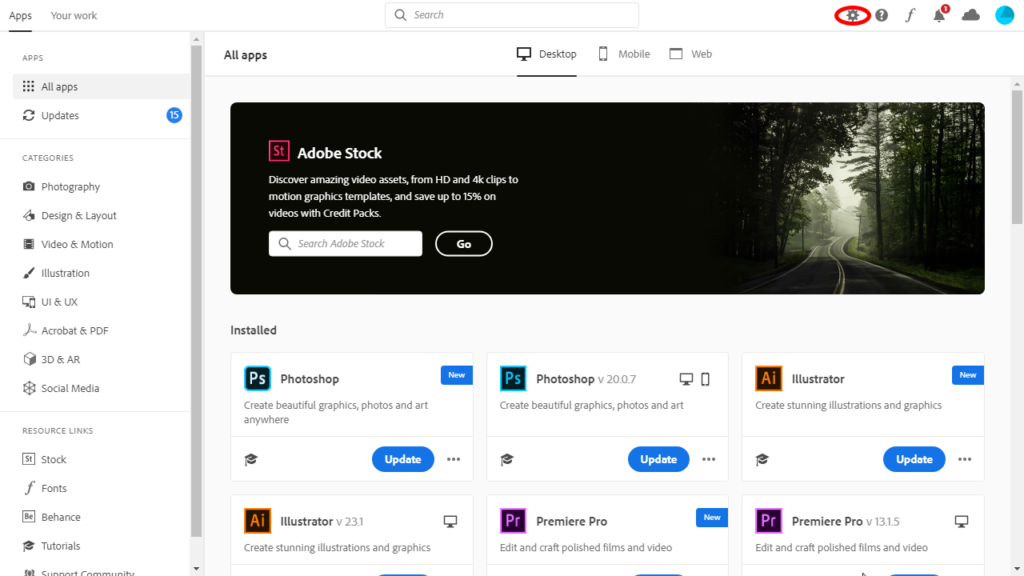

- #How to install adobe creative cloud in dock how to
- #How to install adobe creative cloud in dock full
- #How to install adobe creative cloud in dock software
The new machine is great, although I have to admit that I don’t notice much of a performance improvement over the old one, despite it having a much beefier CPU. Several weeks ago, I upgraded from a 2014 27-inch iMac with Retina display to Apple’s new 2020 version of the same model (see “ 27-inch iMac Receives Significant Update, Other iMacs Get a Nod,” 4 August 2020).

Moving to a New Mac: What’s Left to Do After Migration? #1607: TidBITS 32nd anniversary, moving from 1Password to KeePass, pasting plain text, Mail fixes anchor links, RIP Eolake.
#How to install adobe creative cloud in dock how to
#How to install adobe creative cloud in dock full
The third is to have Lightroom full screen without the menu bar. The second is full screen with a menu bar at the top of the Lightroom interface. The first is the window mode that is the default view. In Lightroom you can press Shift+F to cycle through three view modes.

If you prefer to work in the standard window display mode you can choose View > Screen Mode > Standard Screen Mode from the menu. You can also present only the image itself in a full-screen preview by pressing Shift+F on the keyboard. Note that you can hide the panels in Photoshop by pressing the Tab key on the keyboard. Some users prefer this approach, and others (like me) find it a bit distracting. In other words, the image will be able to float freely behind the panels. In addition, however, the canvas area (where the image is) will no longer be what is essentially a separate window pane.
When you switch to one of the Full Screen options for Photoshop (with or without a menu bar), the title bar for the Photoshop window will disappear. Within Photoshop you’ll find the three options on the View > Screen Mode submenu. In Photoshop the full screen mode behaves a little bit differently than that available within the Macintosh operating system or Lightroom. In addition, Photoshop and Lightroom offer some full screen view modes of their own. When you maximize Photoshop, for example, it will then take up the space that was previously occupied by the dock. To bring back the dock, simply drag your mouse to the edge of the screen where the dock is docked (the bottom of the screen is the default location). Then turn on the “Automatically hide and show the Dock” checkbox. In the System Preferences dialog choose Dock. From the Apple menu (Apple logo) at the far left of the menu bar, choose System Preferences. One option to help make the most of the available screen real estate for Photoshop on the Macintosh platform is to have the dock automatically hide and reveal. So, when you click the green button to maximize the window in Photoshop, instead of going full screen the application will simply fill the available space without covering up the menu bar or the dock. Adobe has thus far not updated Photoshop to support this Macintosh feature for full screen mode.
#How to install adobe creative cloud in dock software
More Detail: In terms of the full-screen mode in the Macintosh operating system, software developers must add support to their applications if they want to make use of this feature. However, Photoshop does include its own variation on a full-screen display. Tim’s Quick Answer: Photoshop doesn’t support the full-screen mode that is part of the Macintosh operating system. Can Photoshop be put in full-screen mode like the other applications? When I open Photoshop and click the green circle it does not completely open to full screen, instead leaving a bit of desktop real estate at the bottom of the screen. Today’s Question: When I open Lightroom (or other software such as Word) on my Macintosh, clicking on the green circle in the upper-left corner causes it to open full-screen, using all of the display area.


 0 kommentar(er)
0 kommentar(er)
